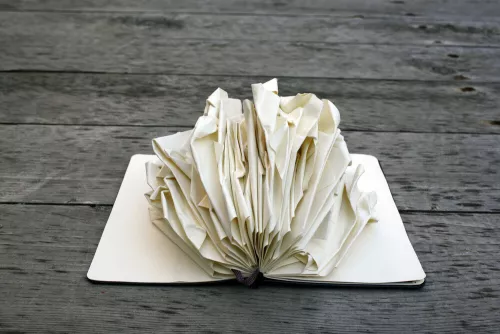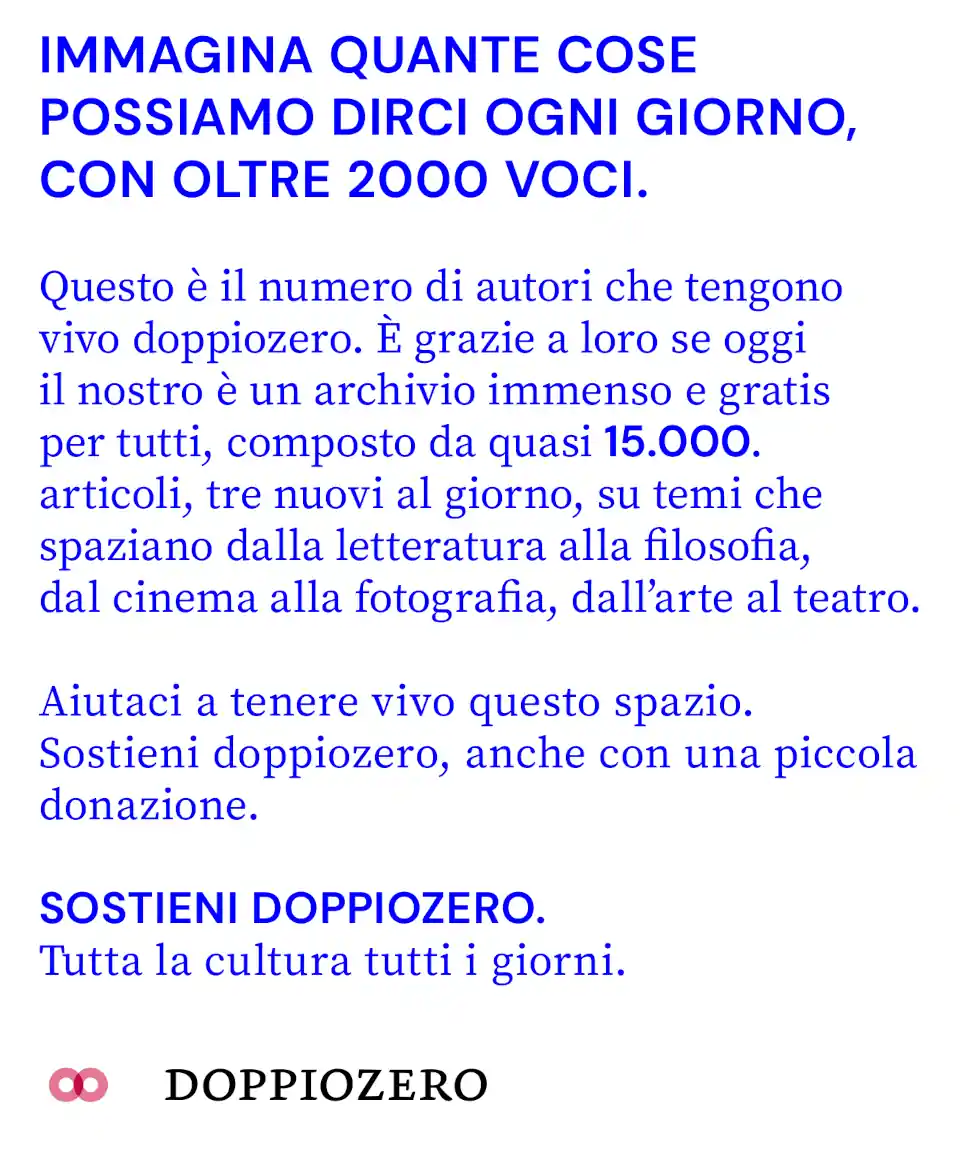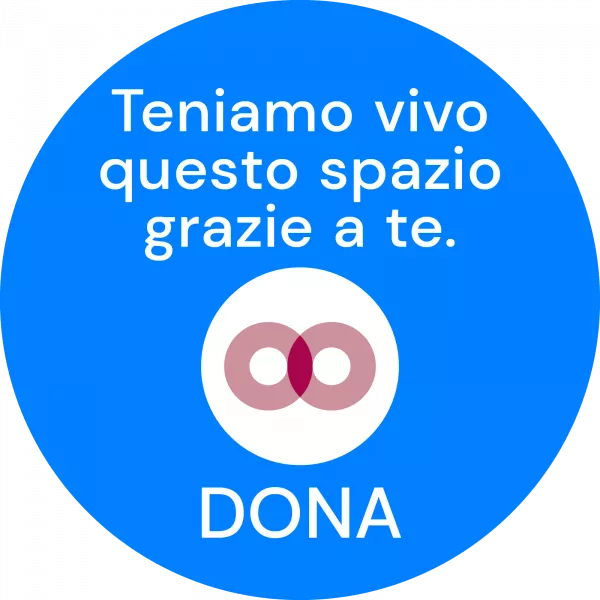Speciale
Venice AtWork Lab: Memory as a Nomadic Archive
Running from October 31 to November 20 at S.a.L.E. Docks – Magazzini del Sale, Venice, Venice AtWork Lab – Talking about migration through the languages of art is the latest advancement of AtWork, the project launched by lettera27, starting with a collection of art notebooks and developing into a series of workshops in a number of countries.
From October 26 to 28, Nation 25, an independent organization, adopted AtWork format to organize a workshop on borders, migration and nomadism, as part of the Nationless Pavilion Laboratory project. About 25 people, including refugees and asylum seekers supported by non-profit organizations such as SPRAR-GUS (Castrì, Lecce), Fontego-SPRAR (Venice) and Civico Zero (Rome), along with Italian students, artists and researchers, were guided by artist Emilio Fantin in re-thinking nomadism from two perspectives: nomadism of thoughts (imagination) and nomadism of bodies (migration). The notebooks created during this workshop, along with materials coming from other two workshops, are exhibited in a collective installation representing “Nation 25”, asylum seekers’ imaginary nation, and have become part of the Nationless Pavilion, which can be viewed at S.a.L.E. Docks, Venice, until November 20.
Venice AtWork Lab is the result of a partnership between the Archive of Migrant Memories (AMM), lettera27, Open Society Foundation, and Nation 25, an art platform managed by Elena Abbiatici, Sara Alberani and Caterina Pecchioli, based in Rome and Brussels, and launched in 2014 by a group of curators, artists and activists.
Here we publish an account of the workshop written by one of the participants, Melania Fusco. Narrated from a subjective perspective, the story describes a range of progressively changing expectations, doubts and impressions, introducing us to an increasingly collective dimension. It captures the passage from individual experience to a shared, communal identity constructed during the workshop through dialogue, exchange of views, and mutual awareness. In the realm of dream.
lettera27
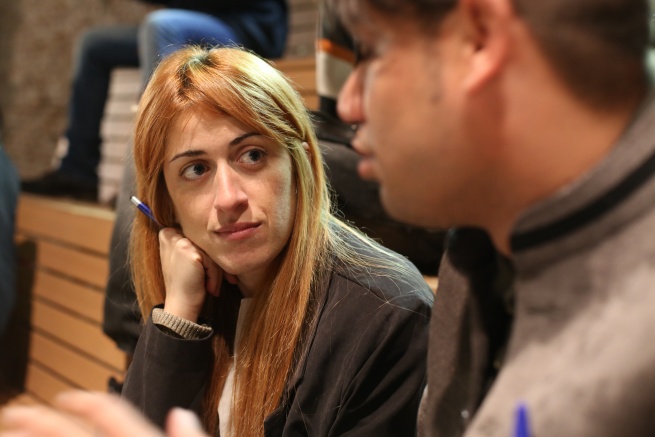
Melania Fusco and Sayed Hamkar, ph. Mohamed Keita
The group, gracefully led by artist Emilio Fantin, was one of the most heterogeneous I have ever met. People of various nationalities, active in the art world or involved as refugees residing in Italy, contributed to an interesting exchange of ideas and thoughts on a widely explored topic, which has always been a source of curiosity and mystery: dream.
I was eager to know artist Emilio Fantin and fascinated by the idea of Nationless Pavilion, so I followed my instinct and decided to take part in this workshop. As a human being – and even more as an artist – I believe that it is dysfunctional not to try and experience the circumstances that force us away from our roots. I actually started the workshop with a sort of negative feeling. I imagined the discomfort of being with young people like myself, with stories different from mine, which I would clumsily try to understand.
But what I was about to experience was completely different. When a group is newly formed, I believe the first hours are the most critical. You may have the feeling that you are not in the right place. Or not even know why you decided to participate. It is quite a challenge to get everyone’s attention and understand the different peculiarities of each person. Some people have perhaps moved away from this experience; others, like me, are still deeply committed to it.
This is also thanks to the first few hours we spent together. All participants were asked to bring something to present themselves and explain the reasons for their participation in the workshop. This allowed us to rapidly change the way we looked at each other. All the objects, words and pictures presented contributed to revealing stories that would otherwise remain concealed.
The video shared by Beki was about her love for the fashion and customs of her country; Olivier showed his totem sculptures to explain the relationships between East and West; Giacomo passed his blank magazine around, inviting us to fill it with whatever form of personal expression we liked. By presenting ourselves to a group of strangers, we all gave a small part of ourselves to the others.
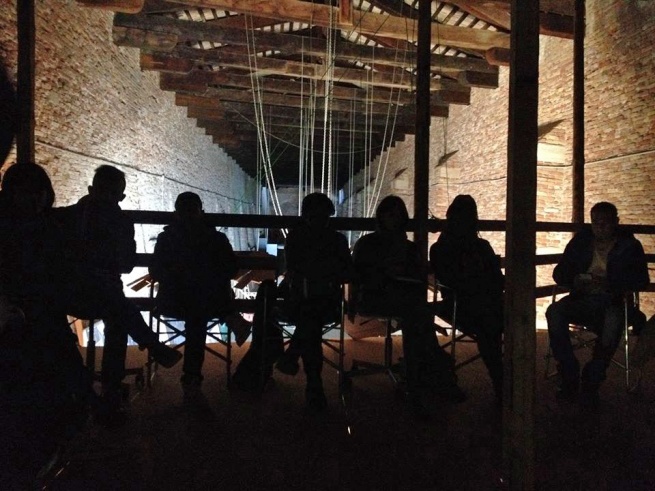
Dreamers AtWork, ph. Mohamed Keita
Gathered on an overhead walkway in the premises of S.a.L.E. Docks, we were guided and prompted by Emilio to focus not only on the oneiric stage, but also on the preceding and following moments. Suspended above the sea level, as in a nest meticulously crafted by a bird looking for shelter, we told our dreams in a timid and confused manner, often in a language that was not entirely familiar to us, and once again I became eager to understand the people around me and their multiple identities. In this sharing process, the words became a vehicle for recovering an inner, immaterial image from a fleeting vision and keeping it alive; an image to be used as a guide, without necessarily translating it into a tangible visual representation.
Even after my immersion in this time-limited workshop experience, as often happens in my artistic research, I continued to give shape to the things that capture my attention during the day. The result is often an abstract sign, in constant interaction with a notebook that I always carry with me in one of my many pockets. This time, also thanks to AtWork, the experience of leaving a trace of our time together was almost immediate. In my work, I do not try to reach a perfect formulation that comes as the final outcome of a process. I am rather interested in providing a constantly open space for interpretation and imagination where you are free to move, according to your time and mind-set. On this occasion, the investigation of the dream process and its production of images, constantly shifting in definition and difficult to decipher, significantly fostered the development of my artistic practice.
Quite often we become so absorbed in our everyday life that we hardly focus on a sentiment to which I am intimately bound. Obligations and distractions often keep us away from a spontaneity that is more deeply rooted in human nature than we might think. Wonder can be defined as “an intense and sudden feeling of amazement or astonishment in the face of something that is or appears as new, extraordinary, unfamiliar, or unexpected.” This is, for me, the meaning of encounter, in all its forms and shades. Each of us felt, caught and reinterpreted the stimuli received; related to our stories and personal experiences, which only make us different for a pedantic idea of personal and geographic borders, but draw us wonderfully closer in the intimacy of dream.
Faced with losses and silences that push us apart, we can use language to create and exchange a magic sign that will never abandon us, if it is so pure and organic as to capture the true sense of being together. Moleskine notebooks had the privilege to host and collect this magic, revealing it to those who were not with us and sharing it with those who will have the chance to see them. Thanks to Nation 25, AtWork, and all the people involved, this project will definitely continue to create opportunities for active connection and creative sharing.
Translated by Laura Giacalone
With the support of 
